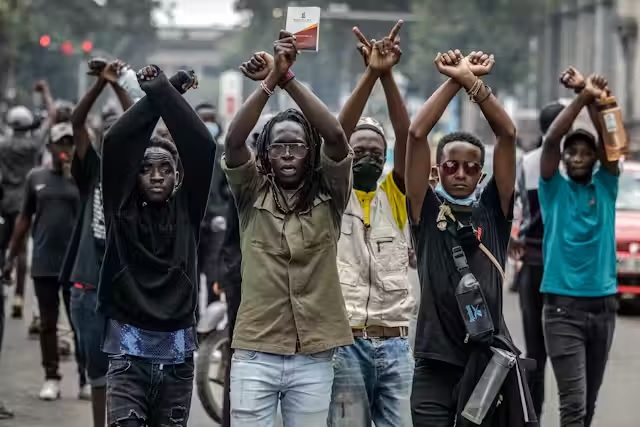
- Challenges that remain for President William Ruto of Kenya include navigating the current crisis and balancing political and economic issues.
- The finance bill proposing new taxes that would increase the cost of living has sparked countrywide outrage.
- The recent agreement with the IMF has led to increased taxes and people already struggling from the economic crisis and food shortages are finding it difficult to afford basic necessities.
Kenya has recently been at the centre of controversy over an economic crisis that is threatening its democracy. It has faced significant challenges amid ongoing conflicts in the Sahel region of Africa, where democratic transitions are often tumultuous. There are several reasons behind the country’s economic crisis, both natural and legislative. This has resulted in widespread demonstrations against the government in recent times.
Over the past few years, Kenya has suffered from severe famine, which has drastically reduced agricultural productivity. Since agriculture is a significant contributor to the economy, this downturn has greatly impacted the country’s primary sector, leading to substantial economic losses. This decline has had a ripple effect, causing civic and political unrest.
On June 26, 2024, massive protests erupted in Nairobi against Kenya’s Finance Bill 2024/2025, driven predominantly by ‘Gen Z’ activists who utilized social media to organize and mobilize. The bill, proposing new taxes that would increase the cost of living, sparked outrage, leading to viral hashtags like #OccupyParliament and #RejectFinanceBill2024. Protesters, coordinated via platforms like TikTok and a specialized GPT, stormed Parliament, clashing violently with police, resulting in over 20 deaths.
Another contributing factor is the recent agreement with the International Monetary Fund (IMF), which has led to increased taxes in Kenya. Already struggling with an economic crisis and food shortages, many Kenyans cannot afford higher food prices. Consequently, large numbers of people have taken to the streets in protest against the government and the IMF deal, which they believe exacerbates their financial difficulties.
Concurrently, digital activism including hacking government websites and spamming political leaders with messages has resulted in chaos in the country. Despite initial dismissals from President William Ruto, who termed the protests “treasonous events,” and harsh crackdowns, the intense pressure led to the withdrawal of the bill on June 27, 2024. This protest showcased the significant impact of digital mobilization and highlighted the growing discontent among young Kenyans towards economic policies.
Challenges that remain for President William Ruto of Kenya include navigating the current crisis and balancing political and economic issues. The recent dramatic demonstrations, particularly by the younger generation, saw people storming the parliamentary building, leading to significant unrest and even incidents of violence.
The financial situation in Kenya is critical, with the government needing to address production issues and economic stability. Maintaining a balance between politics and the economy is crucial. If economic problems are not addressed, the country will face widespread suffering among its citizens, who already struggle with basic needs.
An additional factor complicating the situation is Kenya’s relationship with the United States. Recently, the U.S. government has called Kenya its biggest non-Nato ally, reflecting its pro-Western stance. However, this relationship is contentious, as many Kenyans are unhappy with the government, and there is a history of strained relations between African nations and Western countries.
The major challenge for Kenya is how to uphold democracy, especially considering the instability in many regions of sub-Saharan Africa. President Ruto faces significant challenges in maintaining stability, democracy, and economic growth and he must work to preserve democratic values amidst these pressures.
Aayush Pal is a freelance writer on contemporary geopolitical developments. The views expressed in his work are entirely his own.
